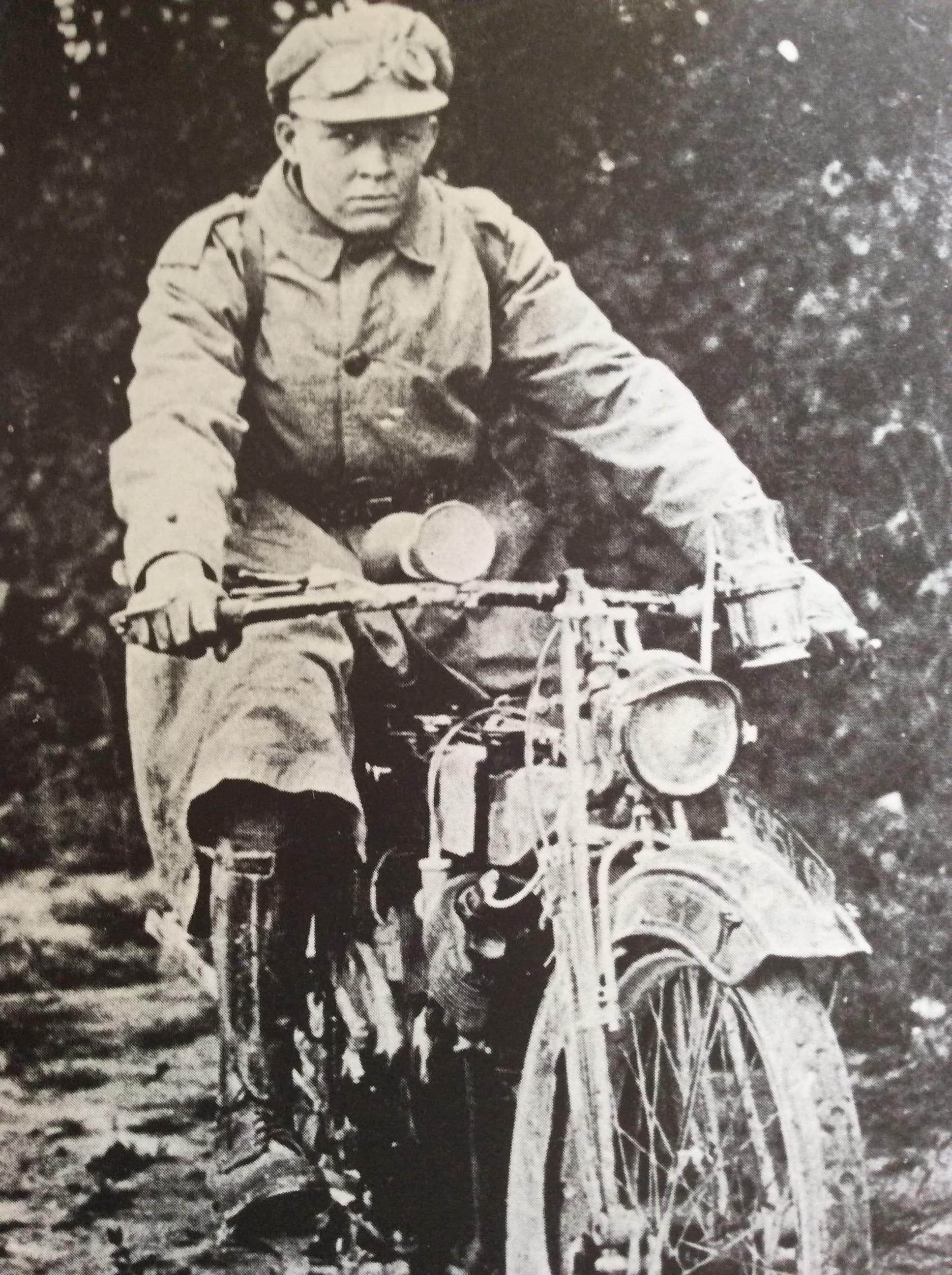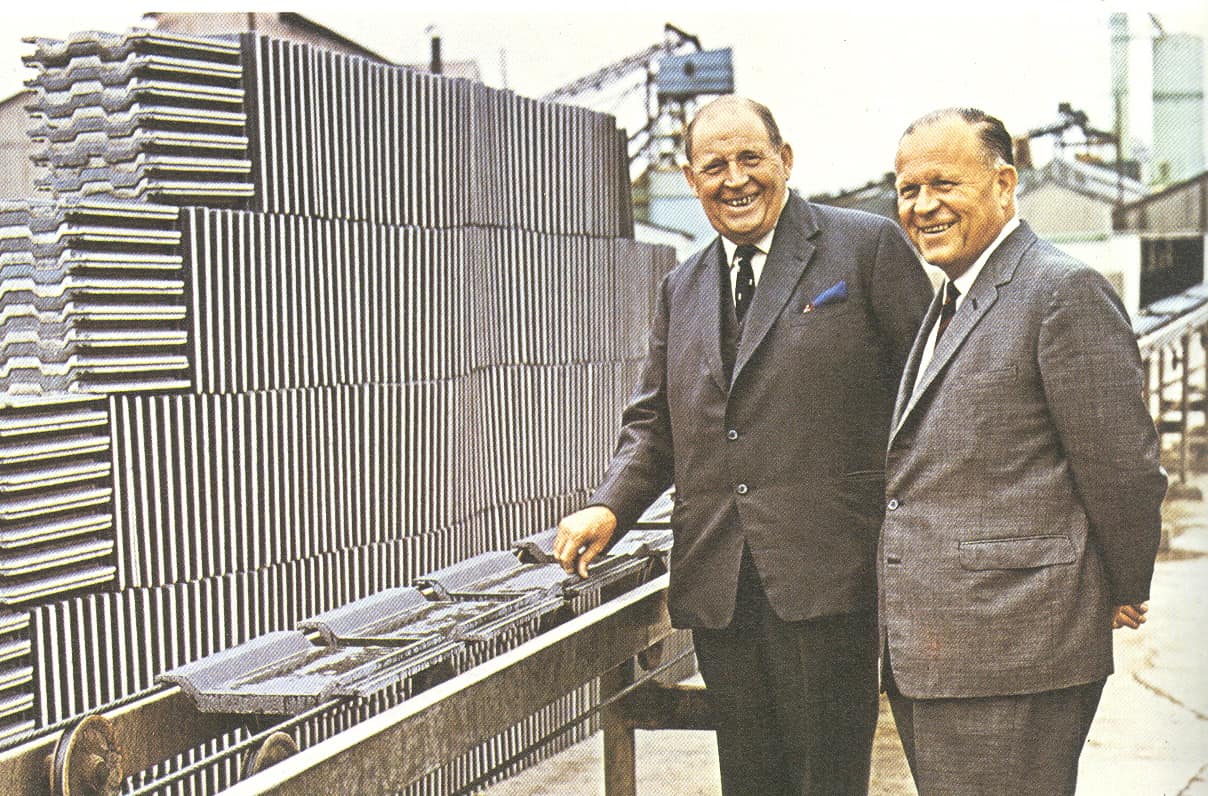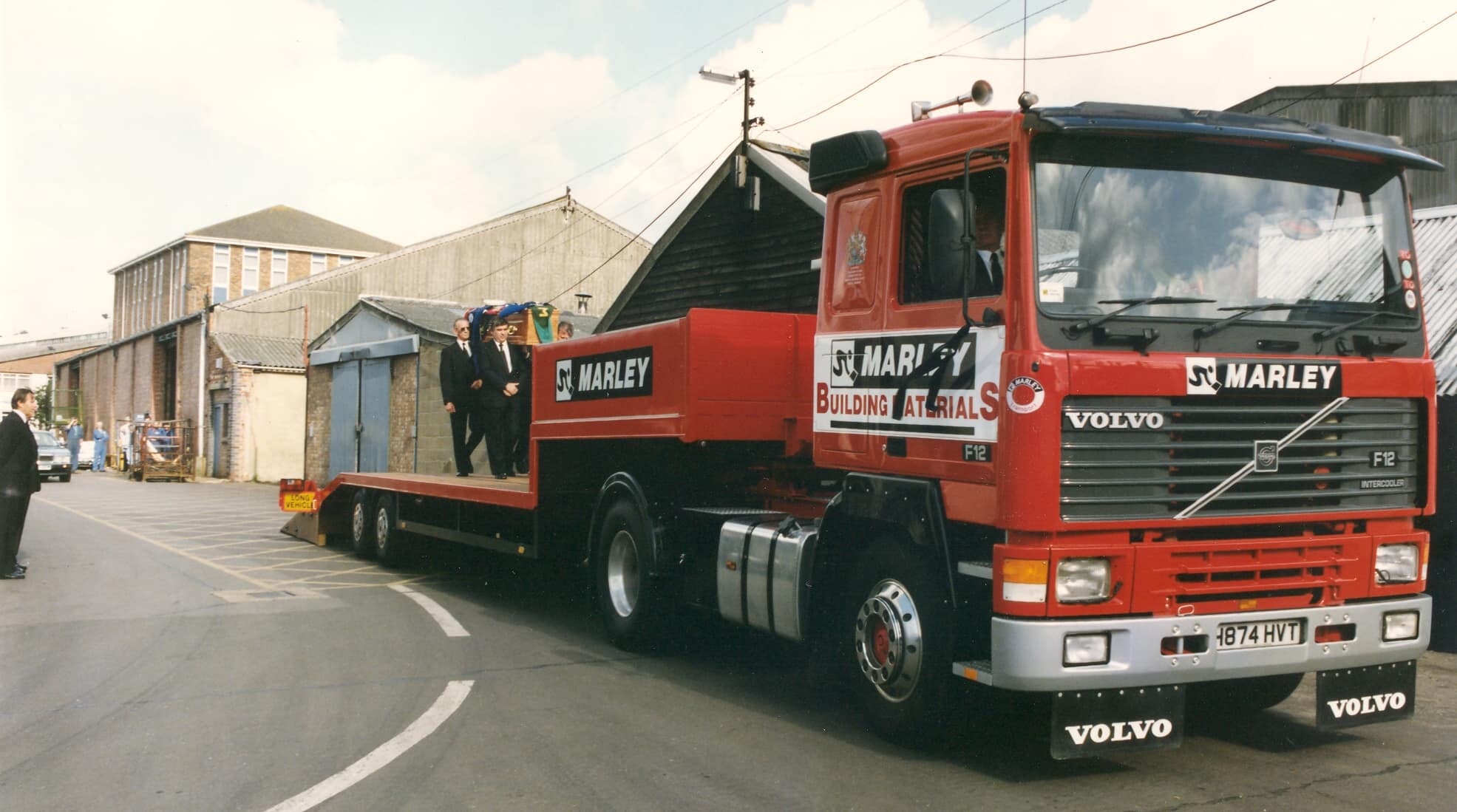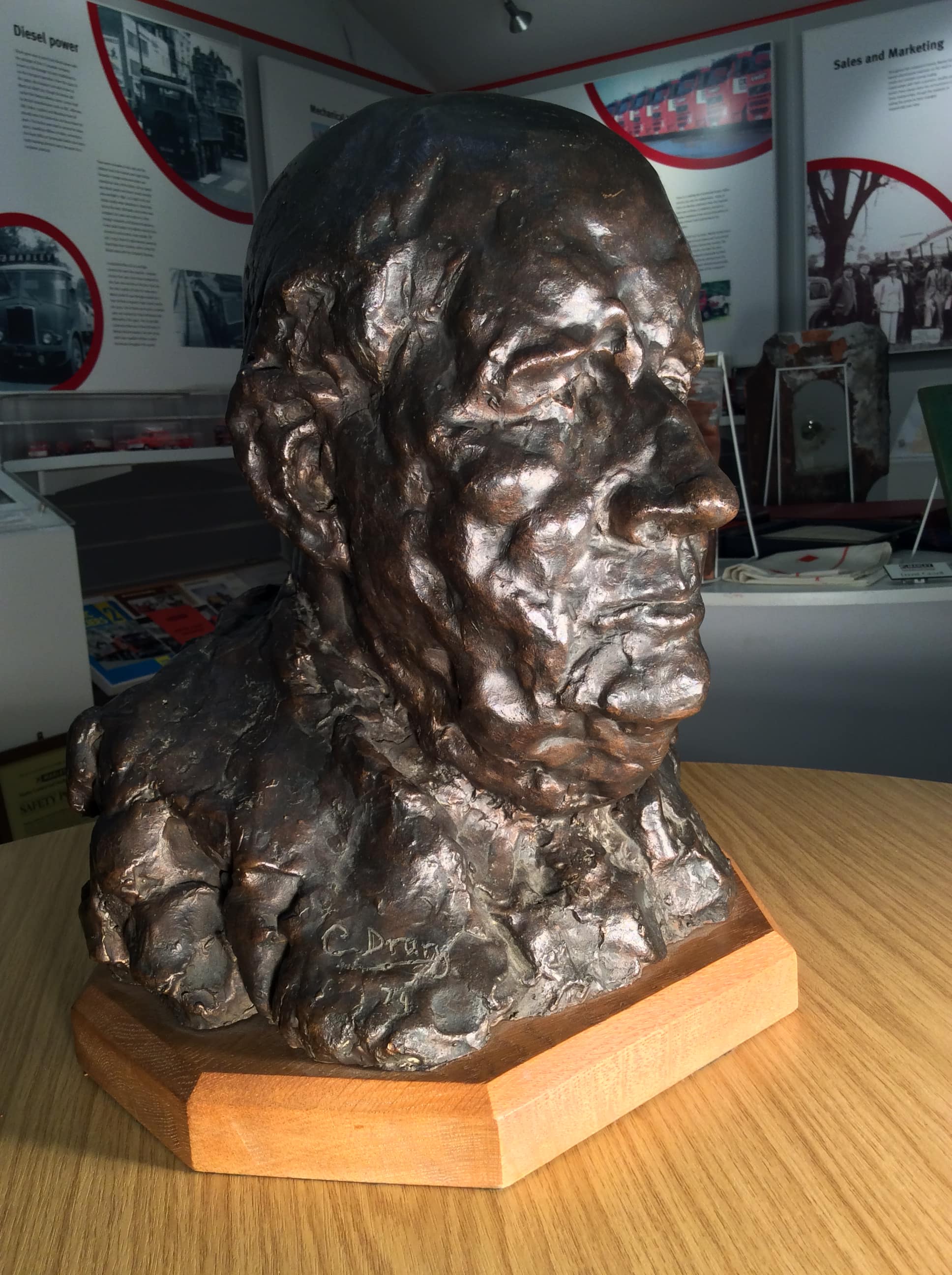His father’s house-building and joinery business was losing money, so Sir Owen decided that their tile-making activity was the way forward. They invested in 5 additional machines and had eight workers, but the average weekly output was still only 20-25,000 tiles.
Sir Owen once described his early tile-selling efforts. “I took two tiles (wrapped in brown paper) on the back of my old police bicycle into Ashford to find somebody who needed tiles." The builder said he didn’t know anybody who could put the tiles on (everybody was short of labour) and I said we would send somebody to put them on providing you pay. We had some spare labour who had been putting these tiles on our own houses, so off they went on a motorbike and that was the beginning of supply and fixing”.
At the same time, the Aishers were also trying the traditional builder’s merchants. “They said they didn’t think much of our tiles, but if anybody wanted them, they might try and sell them. When told the price was 75 shillings a thousand, the merchants said they would never sell at that price. They were treating them as something that had to be pretty cheap, so we wrote them off and got on with it ourselves!” Throughout his career Sir Owen maintained that it you wanted to sell a new product you had to go out and sell it yourself.
Under his leadership, Marley pioneered many new products, including thermoplastic floor tiles, vinyl sheet flooring, plastic pipes and guttering, plastic baths, plus car steering wheels and dashboards. Many of these ideas came from his visits to America, as did one of his least successful – plastic ‘Hula Hoops’. Sadly, the craze never took off in the UK as expected and Marley were left with a warehouse full of stock that they ultimately gave away to schools!
(We have a genuine Marley Hula Hoop in our Museum at Burton!).
Sir Owen was a remarkable man and a very successful businessman. He was also a successful yachtsman, being voted ‘Yachtsman of the Year in 1958’. When he took over from his father and became Chairman in 1944, Marley’s employed capital was £1million. When he handed the Marley business over to his younger brother Jack in 1982, it had risen to over £251million.



